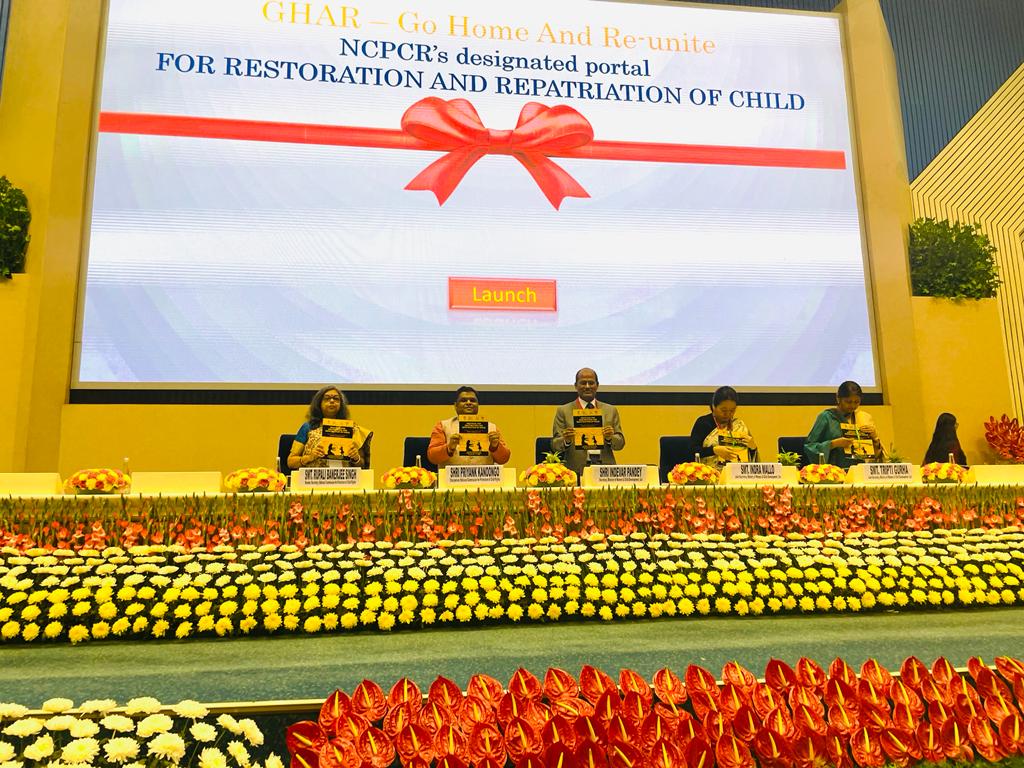News Highlight
The National Commission for the Protection of Child Rights (NCPCR) has recently launched the ‘GHAR – GO Home and Re-Unite’.
Key Takeaway
- The programme’s key objective is to enhance the functional knowledge and improve relevant skills of the Child Welfare Committee (CWC) members and its chairperson to deliver effective and timely service for the protection and rehabilitation of children in need of care and security.
‘GHAR – GO Home and Re-Unite’
- About
- GHAR – GO Home and Re-Unite (Portal for Restoration and Repatriation of Child) – The portal addresses the amended roles of the Child Welfare Committee (CWCs) and District Child Protection Officers (DCPOs) in matters of children in need of care and protection.
- Features
- The portal has digital tracking and monitoring of children in the Juvenile Justice system who need to be repatriated to another country/state/district.
- Digital transfer of cases of children to the concerned Juvenile Justice Board (JJB/CWC) of the State.
- It will help in the speedy repatriation of children.
- Aims
- ‘GHAR – GO Home and Re-Unite portal aims to address the amended roles of CWCs and district child protection units in matters.
The National Commission for the Protection of Child Rights (NCPCR)
- About
- The NCPCR is a body that works towards achieving a child rights-centric approach in all India’s laws, programmes, policies and administrative mechanisms.
- Launched
- It was set up in 2007 under the Commissions for Protection of Child Rights (CPCR) Act, 2005, an Act of Parliament.
- Ministry
- It is a statutory body under the administrative control of the Ministry of Women and Child Development.
- Composition
- This commission has a chairperson and six members, of which at least two should be women.
- Duties and responsibilities
- The Commission’s Mandate is to ensure that all Laws, Policies, Programmes, and Administrative Mechanisms are in accordance with the Child Rights perspective as enshrined in the Constitution of India and also the UN Convention on the Rights of the Child.
- The Commission visualises a rights-based perspective flowing into National Policies and Programmes, along with nuanced responses at the State, District and Block levels, taking care of the specificity and strengths of each region.
Content Source: PIB



